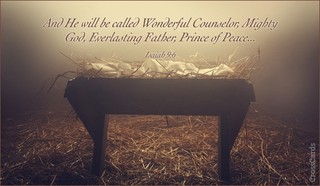
- Recent Translations
- All Translations
Ésaïe 9:18 Meaning and Commentary
For wickedness burneth as the fire
That is, the punishment of their sins, as the Targum interprets it; the wrath of God for sin, which is poured out like fire, and consumes as that does; unless wicked men are meant, who are consumed with the fire of divine vengeance; the sense is the same: it shall devour the briers and thorns;
sinners and ungodly, so the Targum paraphrases it; and Aben Ezra observes, they are the wicked; who are compared to briers and thorns, for their unfruitfulness in themselves, harmfulness to others, and for their weakness to stand against the fury of incensed Deity, see ( 2 Samuel 23:6 ) ( Isaiah 27:4 ) : and shall kindle in the thickets of the forest.
Kimchi thinks there is a gradation in these words, that as fire first begins to burn the thorns, and smaller wood, and then the greater; so wickedness consumes first the little ones, who are the thorns, and after that it kindles in the thickets of the forest, who are the great ones; so the commonwealth of Israel is compared to a forest; and the thorns, briers, and thickets, may denote the common people and their governors, who all being guilty of wickedness, should not escape the vengeance of God: and they shall mount up [like] the lifting up of smoke:
or lift up themselves, or be lifted up; so Aben Ezra and Kimchi interpret the word; but Jarchi thinks it has the signification of (Kwb) , "to be perplexed": and gives the sense of it thus; they are perplexed, and shut up with the strength of smoke that burns: others take it to be a word of the same meaning with (qba) ; and render it, "they shall pulverize", or "go into dust in the lifting up of smoke" F4; and denotes the dissolution of the commonwealth; but perhaps it may be better rendered, "though they shall walk proudly" (or behave haughtily), their "pride" shall be as "smoke", which soon vanishes away; since the word, which is only here used, in the Syriac language signifies to walk proudly, as a cock with two crests F5.
F4 (Nve twag wkbaty) "et epulverabitur erectione fumi", Cocceius; "adeo ut in minutissimum pulverem abeant elato fumo, [vel] elatione fumi", Junius & Tremellius, Piscator.
F5 "Et superbient, (fastuose se gerent,) at superbia (vel quorum superbia) fumus, h. e. fumi instar, evanescit, interibit, quod etiam Armenis indigiat, isfud vacobulum `Abac' <arabic>, Syr. galus, gallinaceus, superbo gradu incedens et bicristatus", Castel. Lexicon Polyglott. col. 12.

